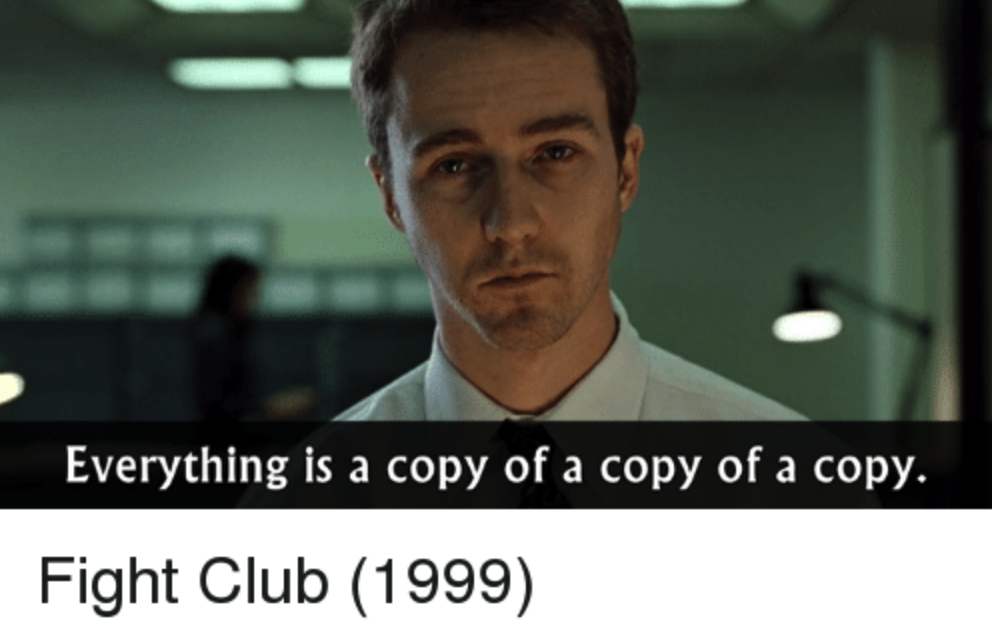
Fiction filler is like fillers in food. It makes a little bit of good stuff go a lot farther, but at what cost? How much of this pink slime prose can we really get away with before readers feel ill?
Almost everyone has padded some form of writing—a school paper, essays, presentations, resumes, etc. In college, I used to write in the passive voice because, over the span of a research paper, I could squeeze in at least 30-40 extra words.
The Indonesian government was taken over by a CIA coup (passive voice).
A CIA coup took over the Indonesian government (active voice).
Add in a bunch of extra modifiers? Easy peasy!
A nefarious CIA coup secretly took over the legitimately elected democratic government of Indonesia, much to the population’s deeply profound dismay.
WINNER! …or not.
Trust me, when you’re barely squeezing over that 20-page limit? Every bit helps. And, if a little filler goes a long way, then a LOT of filler should go much farther straight into the trash.
With non-fiction, it’s often expected that authors will pad the work but even then? Don’t get crazy.
Why Use Non-Fiction Filler?

Non-fiction filler is so common, most people don’t notice it. For instance, testimonials are a common way to pad the word count. If you read most diet books, the authors will almost always include personal stories how X eating plan changed lives among those in their target audience.
These filler sections teach nothing directly about the diet, workout plan, budget guide, or ways to start a small business, but they do add credibility to the experts and their books.
If I write a non-fiction about how to lose a hundred pounds or more, then it’s a GREAT idea to have testimonials showing I might actually know what I’m talking about. Testimonials demonstrate, via anecdotal evidence, that my methods not only work, but that my results can and have been duplicated by others.
Think about infomercials.
How much of the infomercial is about the actual item versus people using the product or telling how X gizmo did something amazing?

Other non-fiction filler might be exercises, examples, or addendums (I.e. sample budgets, diet plans, meal plans, goal sheets, etc).
Non-fiction filler serves another, and fairly obvious, purpose. It can make the work long enough to justify people buying the physical BOOK (hopefully in hardback). For those who are pre-published and might not know, we need to reach a certain word count for a printed work.
If our work is too short, we don’t have a book, we have a pamphlet. We need to have enough content to make a decent book spine that is wide enough to showcase the title and our name.
While some people are happy to sell only in digital form, NF authors like to be able to sell ‘the book at the back of the room.’ NF authors also need a print book in order to negotiate placement with retailers (I.e. airport newsstands, Costco, Target, Walmart).
What about Fiction Filler?

Writers will pad a work of fiction because—DUH—they also want/need it to be longer. Perhaps the story isn’t quite robust enough to be a full-length novel. If I want a book to hold in hand, it needs to be a certain word count…so I add a little extra.
No problem, so long as I don’t get crazy.
Or, say if I want to list my book on Kindle Unlimited, I know I’m paid more for a longer book (KU pays per page read). Thus, there is a temptation to add in extra words so I can, theoretically, make more money.
To a degree, this can work. Yet, there is a certain threshold we reach where it just becomes bad writing. It won’t matter HOW much KU pays per page if readers want to throw their Kindles across the room twenty pages in. It will be MUCH harder to encourage future readers if most of our reviewers are wielding digital torches and pitchforks.

***I cover some of how to remove the major offenders here in my post, Editing for Authors: 7 Ways to Tighten the Story and Cut Costs.
All this said, I LOVE description. For me, there is nothing better than a novel with prose so rich and yummy I want to dog-ear, highlight and pillage for my collection of shinies. THIS, however, is a stylistic choice, and has nothing to do with skill level.
Lush prose (AWESOME) doesn’t automatically qualify as purple prose (NOT AWESOME).
This brings us to our first fiction filler offender.
Purple Prose to Plump the Plot

Purple prose is the literary equivalent of cotton candy. Lost of sugar spun with even more air. A little is fine but too much will make us sick.
Purple prose is defined as:
…overly ornate text that may disrupt a narrative flow by drawing undesirable attention to its own extravagant style of writing, thereby diminishing the appreciation of the prose overall.
Wikipedia
Have you ever read a work that rambled on so long with the description that, eventually, you forgot the point of the story? While purple prose certainly can pad the word count, it’s also a quick way to frustrate readers. Anything that disrupts the story, and thus interrupts the fictive dream, is bad.
For example, if I spend so long describing a magical forest that the reader has to go back to figure out why the MC is even in the woods? This, over time, gets annoying.
There really is no strict rule for what constitutes purple prose. Readers who love Hemingway-esque austerity are prone to think any description is too much description. Much of this is subjective.
So how can we ‘tell’?
One trick is to read your work aloud.
Record it on your phone and play it back. How does it sound? Are there places where you stumble reading it aloud? If the prose trips the tongue, odds are it will trip up the brain and the reader.
Read samples aloud to friends or a critique group. Though we can’t please everyone, if we get more than three people saying they were lost or confused? That’s a good hint we need to refine our work.
Nix redundant adverbs. That is just lazy/amateur writing. If your character yells loudly…um, how else are they supposed to yell? Adverbs can be powerful, but they can also be overused to prop up weak writing.
Check out Six Easy Tips for Self-Editing Your Fiction.
Just appreciate that sometimes, less is more, even in description.
Fiction Filler & Too Dumb to Live

I have Kindle Unlimited because I read and listen to an INSANE number of books. My KU membership gives me access to audio books that I can ‘read’ without using one of my credits.
***This is a fabulous way to attract new fans, most especially if you have a series.
Like I mentioned in my last post, Literary Larceny & Why People Should Be Ashamed, if I discover a new author on Audible, I will donate blood to finish their series/read everything they have available.
While I have scads of favorites, not every novel can be a winner. The last book I tried to listen to is largely what inspired this post. To be fair to the author, the concept was excellent and the story started off strong. Plenty of people enjoyed it.
But, in my POV, the author used SO much filler that they split their audience between those who loved it and those who wanted to set the work on fire, then salt the earth beneath it.
If we pad the run time, we risk making the characters—the MC in particular—come across as too dumb to live.
In this book, the MC had one annoying habit that finally rendered the story unreadable.
She questioned everything to the point of distraction. If she was going out for groceries, we (the readers) were subjected to paragraph after paragraph of annoying indecision.
(My parody to give the gist…)
I was supposed to make dinner, but I hadn’t been feeling well. Since I’d been sick for the past week, the fridge was almost empty. Was I really ready to get out of the house? I wasn’t sure.
What if I saw someone I knew? Worse still, what if someone from my husband’s office saw me? Would word get back to him? I didn’t know if I could take any more of his lectures how I was letting myself go.
Was I really letting myself go? I HAD been sick. Really sick. That should have been enough to not look my best. Wasn’t it? Or was I just making bad excuses?
Maybe I could try harder. I could wear my new sundress. No, too casual. What about my pants suit from the other day? That was nice enough, right? And only buy a rotisserie chicken. That wouldn’t take too long…
FOR DUCK SAKES, MAKE A DECISION!
Though I am being silly here to protect the guilty innocent, my example isn’t too far off from the painful waffling on almost every page of the novel. The MC fretted over every little thing on almost every page, with every…single…decision.
Apparently, I wasn’t the only one irritated to the point of distraction.

Word/Phrase Echoes as Fiction Filler
For anyone who’s ever completed an entire book, CONGRATULATIONS! For those who haven’t? I am warning you ahead of time that you WILL have a favorite word or turn of phrase that you’ll use WAY more than you intended.
It happens.
This is why good editors/beta readers are invaluable.
How do you know if you’ve used a word/phrase too many times? Ask two key questions here:
- If you turned every time the audience read a certain word/phrase in your MS into a drinking game, would readers die from alcohol poisoning?
- If you answered ‘YES’ to Question 1, then how QUICKLY would the reader die?

Many of these turns of phrase are common just in general. I’ve used the notion of a smile that doesn’t reach the eyes. This is used to convey to opposite of the Duchenne Smile, which is a smile of authentic happiness/enthusiasm.
Someone can be smiling at you, but deep down you sense they’d stab you if it were legal. Thus, their “smile doesn’t reach their eyes.”
Got it.
Nothing wrong with using this once, twice, maybe more. But, when we readers start noticing it to the point of distraction? That is a big problem.
This author was also a fan of ice in physiological descriptions. The MC’s blood turned to ice, her spine turned to ice, her stomach chilled to ice, ice flowed through her chest, her nerves froze to ice….
OKAY I GET IT! THIS BOOK HAS MORE ICE THAN THE POLAR CAPS!
Repetitive Actions/Scenes

One of the main reasons I’m a stickler about tight writing is because clean prose makes it much easier to see if our characters or plot are weak (then strengthen accordingly).
Sadly, what a lot of authors (new authors) do is, instead of fixing the core problems, they use giant globs of Literary Bond-O to hold their story together. How do we spot Literary Bond-O? Repetition.
The MC in this book was constantly drinking, falling or spilling something. I also lost count how many scenes the character was having wine. Which, hey I like wine but there are other background actions a character can be doing aside from refilling her drink.
Get Creative
In one scene, the MC refilled her glass so many times, she went through almost two bottles easily (4 glasses to a bottle). By the time the author got to the end of the scene? The MC should have been wasted.
Lord knows I wished I were…
Not to mention I paid more attention to counting refills than to the plot. No bueno.
I get it. The author was trying to show the MC was nervous. Fine. She’s in a kitchen. Refill the wine, reorganize the cutlery, refold the bar towels. There are a lot of other ‘busy’ activities that can show a character is nervous. Think beyond that ONE thing.
Change it UP!

The MC also kept startling, which is fine. But, again, she kept startling in the same exact way. I lost track how much stuff she dropped/broke/spilled.
Humans react all along a spectrum. Over at Writers Helping Writers, Angela Ackerman and Becca Puglisi have all KINDS of resources to help us add depth and dimension to our stories. These ladies are the authors of The Emotion Thesaurus, which is a MUST-HAVE in every author’s reference library.
There is more than one way to show every emotion or reaction. True, our heart races when stressed, but we can also get dizzy, have sweaty palms, ringing in the ears, etc. Vary up the physiology.
Yes, we can spill things when startled. Spilling something—coffee, wine, tea, contents of purse—every ten pages?
Everybody DRINK!
How to Fix the Filler

Again, beta readers and a good editor can help. Then there are also common offenders when it comes to repetitive words (look, looked, looking, turn, like, etc.).
If you suspect you might be using the same descriptors, use Word FIND and highlight every time a certain word pops up in the MS. For instance, if I keep using ice (ice in her heart, ice through her veins, Ice, Ice, Baby…) do a Word FIND for ‘ice’ and either highlight it or FIND/REPLACE in all caps with ICE. This will help you SEE just how many times you might be reusing the same word.
***Just expect to also see ‘sushi and rICE’, because Word FIND CHANGE/REPLACE won’t discriminate between ‘ice’ the word and ‘ice’ as part of a word.
Also, search for synonyms while you’re at it (cold, chill, frozen).
Once you’ve found all the offenders and fixed accordingly, then just use Word FIND Change/Replace to revert it back.
In the end, relax. First, give yourself permission to be new. Then, realize even the best writers do it. There is no such thing as the perfect book. As I mentioned with ‘purple prose’…
Some of this ‘filler’ is going to be subjective.
We still need to do the best we can. The more distractions we can remove from our story, the better the odds readers will not only finish our books, but they’ll read everything we have AND recommend us.
While we can’t please everyone, I do hope this post helps y’all trim any fat and get rid of any fiction fluff. Bye, bye, book bloat!
What Are Your Thoughts?
Have you tried to read or listen to a book and couldn’t get past all the empty fillers? Are there some other types of fictional fluff you would add to the list? Does fiction filler not bother you? Do you have a certain threshold you can take and then it’s OVER?
I love hearing from you!
What do you WIN? For the month of APRIL, for everyone who leaves a comment, I will put your name in a hat. If you comment and link back to my blog on your blog, you get your name in the hat twice.
What do you win?
The unvarnished truth from yours truly. I will pick a winner once a month and it will be a critique of the first 20 pages of your novel, or your query letter, or your synopsis (5 pages or less).








23 comments
2 pings
Skip to comment form
As always, you give me the total MEAT, woman. Thank you! So much good stuff to digest. learn, and grow from. Very much appreciate the time you take to impart all this wisdom.
Author
You are very welcome! Thanks for taking the time to tell me. I appreciate it.
I edit fiction books. Filler and repetition is a big problem with a lot of authors. The scary thing is that some of those authors continue to sell books, even though they aren’t well written. If their readers don’t care that they’ve read the same tired words and phrases on every other page, why should the author? If crap sells, they’ll keep writing it, because it’s easier to do that than learn their craft.
Perfect post for me, Kristen! My current WIP edit is driving me mad with filler-isms and trying to find different ways to say: stop doing this!
I have one small pet peeve in this vein: writers find a phrase or word that is particularly impressive and pricks the mind, which makes the reader remember it especially… next, writers will innately (or whatever) recognize the power of the phrase or word and, boink! stick it into another scene. Perhaps it still retains some power, perhaps it isn’t a strong framing and makes a mess of things. The writer doesn’t think about this though — it’s all about using the ‘power’. What is created though, is a phrase or word that sticks out like day-glo green…so if you use it 3 times (or even twice) the reader gives it special attention. The use reminds the reader that this phrase or word was a jolt the last time it was encountered — oooo yay! Here it is again! Hold on tight!
And then, there’s no jolt. Disappointment. Deflation. Wrinkles form in trust bond with author. Then, the reader’s eyes are drawn to the jolt trigger phrase or word, lurking down the page (maybe 100 pages later). The mind demands we check it out, now, disrupting the flow and when the jolt, again, doesn’t happen, the reader is pretty aggravated.
Gee, apparently this is not such a small pet peeve for me…
Writers should be wary of overuse of stimulating phrases or words that get a lot of mental press in readers’ minds, the one-time use will carry those readers a long way into the book on their own. Avoid the potential poisoning of the well through repetition.
Thanks so much, Kristen, forgive the unforeseen stomping about the place with arms all akimbo…. :O)))
Now I’m torn. The MC in my WIP blushes a lot. But it’s really part of his character, embarrassment being the reaction he’s stuck in, and gains some mastery over by the end of the story.
I’ll just have to review my work and see if I have overused it, or if it makes sense naturally. It’s going to be a fine line, I’m sure. But thanks for the insight!
Author
Do a word search and see how many you can change if you’ve overdone it or they are too close together (or use some synonyms). It is really easy to wear out even when it is a peccadillo.
I’m guilty of getting stuck on a word that appears several times over a couple pages. As far as bloated writing, I recently read an excerpt on Facebook from a self published novel. The author wrote several well written sentences in a row, but every paragraph or two ruined the flow with a passage full of goopy words. This is one that stuck with me: “I stepped back very slowly, very very slowly.”
I have a list of authors I refuse to read anymore because of this. The most annoying is when they are in an internal dialogue like your example and the MC manages to live through an what-if event that goes on so long it sounds like it really happened (dialogue and action) to a hopeless conclusion for pages. Talk about losing the reader. I spend most of the book skipping to the end to avoid the imaginary plot twist spiral. I keep the list of these authors on my phone, so I don’t get sucked into an intriguing story premise because they write the kind of books, I like which makes it so aggravating. Money waste and mind numbing to be avoided even for unique plot.
Thanks for your posts.
Loved your Word search solution for finding overused words. Here’s a trick to keep the search results to a minimum. When you do a FIND, just put a space before and after the word you’re looking for in the search field. The results will leave out any word that includes the word you’re looking for.
Author
That is another good way. I just find replacing a word like “look” with “LOOK” has been the easiest. Since “look, looked, looking” are all major repetition offenders just searching for LOOK nails all of them. Same for “turn, tuned, turning.” “TURN” weeds them out. But hey, I ALWAYS love learning something new so thank you!
A fellow writer asks my assistance in cutting bloat and repitition, so I’m aware in my own writing — I thought. Today, my editor made mincemeat of my last chapter and pared it down considerably. The struggle is real! ?
Thank you for the insight. I’m about to embark on editing the “firstish” draft of my first novel and I have a LOT to cut as it came in at close to 150,000 words. I started “pantsing” it and soon realized I needed help. My new writing coach convinced me to start over after I had 80,000+ words written. One thing I did in an attempt to shorten (cough, cough) my story was to eliminate some unnecessary characters, so I killed off several darlings. They moved the story along but weren’t significant players for the story. George RR Martin’s epic with the cast of thousands is a good example of how having too many characters can become problematic for the reader and the author.
On using repetitive words and phrases, I’d add that characters should use certain words, phrases, and/or patterns of speech to make them unique. The MS becomes difficult when the reader cannot tell who is speaking without their names in the dialog tags. It is a delicate dance to create rich characters with specific words/phrases without repetition.
Author
That is true, and nothing wrong with that. Just we need to keep an eye on how much they are saying that catch phrase. Besides, dialogue is more than repeating the same phrases. People speak using different vocabulary, more slang, no slang, profanity, malapropisms, with subtext, on and on. Dialogue is actually very hard to master. Ideally, we should be able to read lines of dialogue with no tags and know who is speaking.
Hey, Kristen. Terrific post, and a topic I work on with my critique group regularly, especially with the new writers. I’d like to add a couple techniques for finding repeated words. Both work best when used together, actually, or writers can (and should) use the first one with your suggestion to replace the offender with the same word in all-caps.
The first technique is to click the “More > >” button on the “Find and Replace” pop-up window, then check the “Find whole words only” check box. That’ll take care of finding mice and rice and nice when what you were looking for was ice, for example.
The second technique is, before the writer clicks/taps the “Replace” item on the ribbon, they should
– Select a highlight color (yellow, light green, and light blue are good choices, the darker, more solid colors not as good);
– Open the “Find and Replace” pop-up;
– Enter the offending word as usual, but select the word in the “Replace with:” window;
– Click the “More > >” button;
– Click the “Format” button, and
– Select “Highlight” at the bottom of the drop-down list.
The “Replace All” button will do its magic and those naughty words will stand out. (It takes longer to describe than it does to do.)
Author
That is AWESOME! Thanks so much for the help. I figured there was probably a workaround but I have been too lazy to find it. Thank you SO MUCH!
Happy to provide it. Hope it helps your other readers.
I never thought of word padding as such, including the non-fiction essays I write. But it is useful to add some if it helps to explain your point to different levels of reading.
Author
Well, I am guilty. My blogs could be A LOT shorter, but very often I give examples. A lot of what you can learn you can glean from reading the main headers and lead in sentences. Everything in between is usually application.
Author
And, technically, in non-fiction, what you are talking about wouldn’t, per se, be considered padding. What I was referring to were sections one could cleanly cut from the book and still be coherent. NF is an essay format. You give a thesis statement then write examples to support/disprove a contention.
Good one. One way to pad that can make a short MS better are subplots. I also spot weasel words a lot. Some new writers I know confuse their style with bad prose. That may be a good subject for you to share with us. Good style, to me, is done best when the less-is-more idea employed. I think people really fail in line editing. Every word and every line needs careful consideration and it seems people run out of energy for that. Making every word count is a big job.
I see this all the time as an editor. They write the book and think they’re finished. The editor gets a rough draft and often spends way too much time fixing basics when they should be addressing deeper issues.
This is one of my favorite blogs. Love your humor, insight, instruction and information. Has helped me tremendously in my writing. My editor has patiently noted when I get on repeat word kicks. A word will stick in my head and before I know it I have used it several times in one paragraph. Using the word search option in Word helps tremendously. Thank you for the reminder.
Duchenne Smile reads like purple prose! 🙂 I quit halfway through.
[…] Fiction Filler: Bloated Writing Makes Readers Sick by Kristen Lamb […]
[…] Fiction Filler: Bloated Writing Makes Readers Sick […]